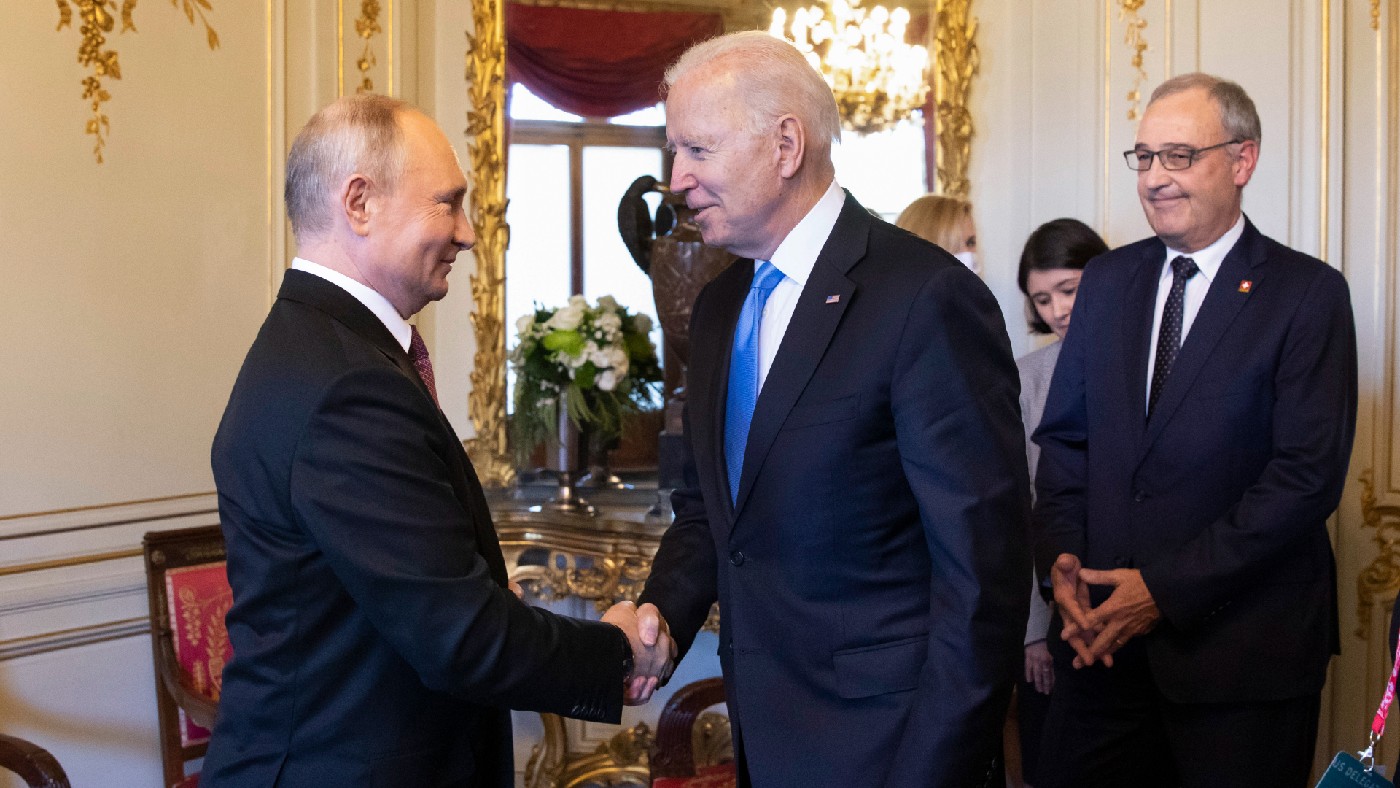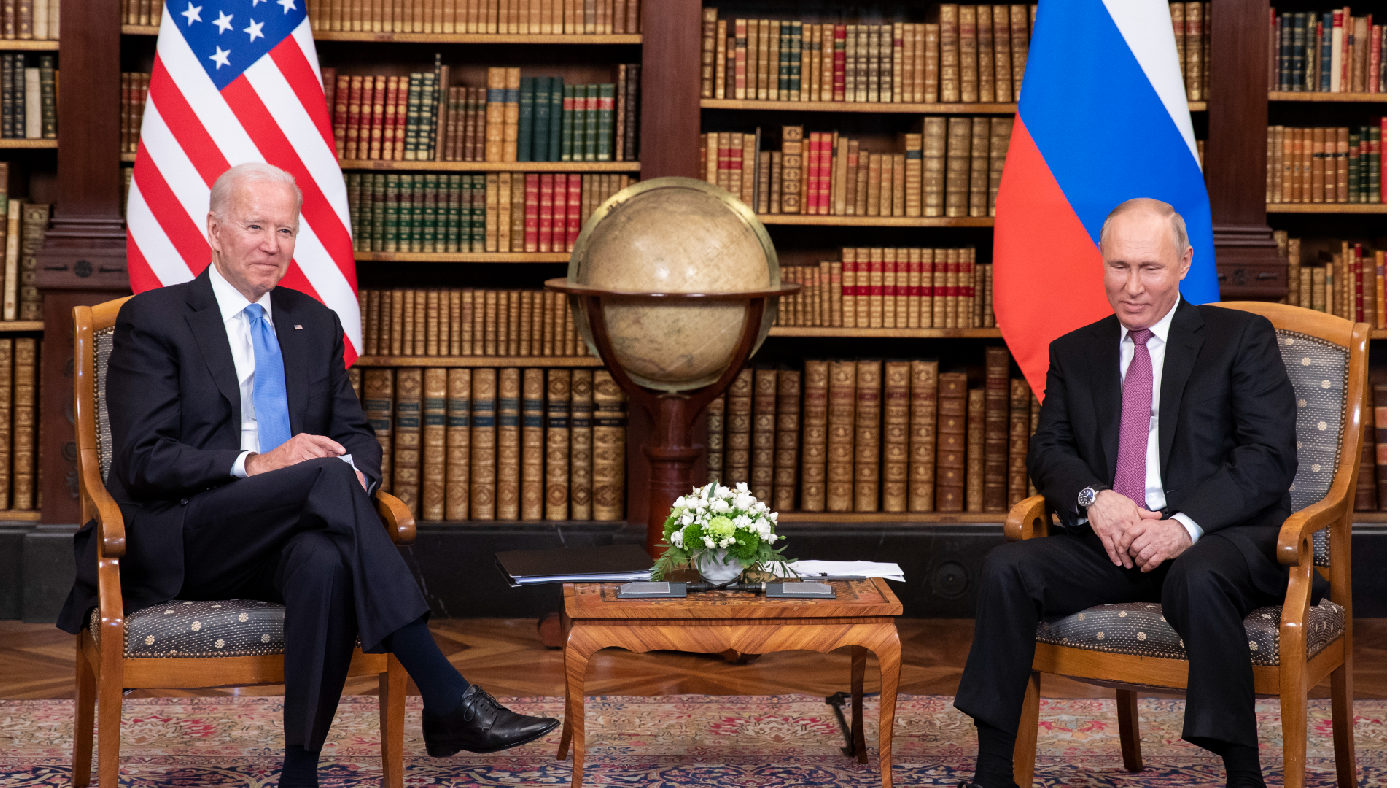Biden’s meeting with Putin: a win for the Kremlin?
The Russian and US presidents met last week, but didn’t look into each others’ souls

A free daily email with the biggest news stories of the day – and the best features from TheWeek.com
You are now subscribed
Your newsletter sign-up was successful
When George W. Bush met Vladimir Putin in 2001, he claimed that he “was able to get a sense of his soul”, and had found him very “trustworthy”. Earlier this year, Joe Biden stated that he regarded Putin as “a killer”. When presidents Biden and Putin met for the first time in Geneva last week, “no one peered admiringly into anyone’s soul”, said Peter Baker in The New York Times. But equally, “no one called anyone a killer”.
Biden made an effort to “forge a working relationship shorn of the ingratiating flattery” displayed by Donald Trump towards Putin, but friendlier than during the Obama years. (Obama refused to meet Putin after the Russian invasion of Ukraine in 2014.) The summit seems to have been a limited success. The pair agreed to disagree about Russia’s international aggression and its treatment of internal critics such as Alexei Navalny. Biden said the talks were “good, positive”. Putin called his counterpart “a very balanced, professional man”.
This was the “most productive” summit between the powers in decades, said Timofey Bordachev in Vzglyad (Moscow). The main result was the return of the Russian and US ambassadors to their posts; they were withdrawn following the “killer” comments in March. More generally, the leaders had the opportunity to talk frankly, while sticking to their firmly-held positions. “This is exactly what Russia has always called for.”
The Week
Escape your echo chamber. Get the facts behind the news, plus analysis from multiple perspectives.

Sign up for The Week's Free Newsletters
From our morning news briefing to a weekly Good News Newsletter, get the best of The Week delivered directly to your inbox.
From our morning news briefing to a weekly Good News Newsletter, get the best of The Week delivered directly to your inbox.
Or, to put it another way, said The Times (London), “the leader of the free world sat down for four hours with an autocrat who has destabilised the international order and altered the boundaries of Europe by force”. This was a concession to the Kremlin, as was the decision to extend the New Start nuclear arms reduction treaty, first signed in 2010, although Russia has expanded its arsenal since. It is less clear what Biden got in return.

This was not, as Biden put it, “a kumbaya moment”, said The Australian (Sydney). The president’s primary objective was to lay down the US’s “red lines”. On cybersecurity, Biden handed Putin a list of 16 “critical infrastructure” sites that he warned were “off limits” to Russian cyberattack, on pain of a major US retaliation – he made sure to remind his opposite number that the US had a “significant cyber-capability” that could be mobilised.
He also warned that if Navalny died in prison, the consequences for Moscow would be devastating. If nothing else, “his warnings should be a lesson for the Russian despot that things in the White House have changed”.
A free daily email with the biggest news stories of the day – and the best features from TheWeek.com
-
 The Week contest: AI bellyaching
The Week contest: AI bellyachingPuzzles and Quizzes
-
 Political cartoons for February 18
Political cartoons for February 18Cartoons Wednesday’s political cartoons include the DOW, human replacement, and more
-
 The best music tours to book in 2026
The best music tours to book in 2026The Week Recommends Must-see live shows to catch this year from Lily Allen to Florence + The Machine
-
 ‘The forces he united still shape the Democratic Party’
‘The forces he united still shape the Democratic Party’Instant Opinion Opinion, comment and editorials of the day
-
 Democrats push for ICE accountability
Democrats push for ICE accountabilityFeature U.S. citizens shot and violently detained by immigration agents testify at Capitol Hill hearing
-
 Fulton County: A dress rehearsal for election theft?
Fulton County: A dress rehearsal for election theft?Feature Director of National Intelligence Tulsi Gabbard is Trump's de facto ‘voter fraud’ czar
-
 ‘Melania’: A film about nothing
‘Melania’: A film about nothingFeature Not telling all
-
 Greenland: The lasting damage of Trump’s tantrum
Greenland: The lasting damage of Trump’s tantrumFeature His desire for Greenland has seemingly faded away
-
 Minneapolis: The power of a boy’s photo
Minneapolis: The power of a boy’s photoFeature An image of Liam Conejo Ramos being detained lit up social media
-
 The price of forgiveness
The price of forgivenessFeature Trump’s unprecedented use of pardons has turned clemency into a big business.
-
 Reforming the House of Lords
Reforming the House of LordsThe Explainer Keir Starmer’s government regards reform of the House of Lords as ‘long overdue and essential’